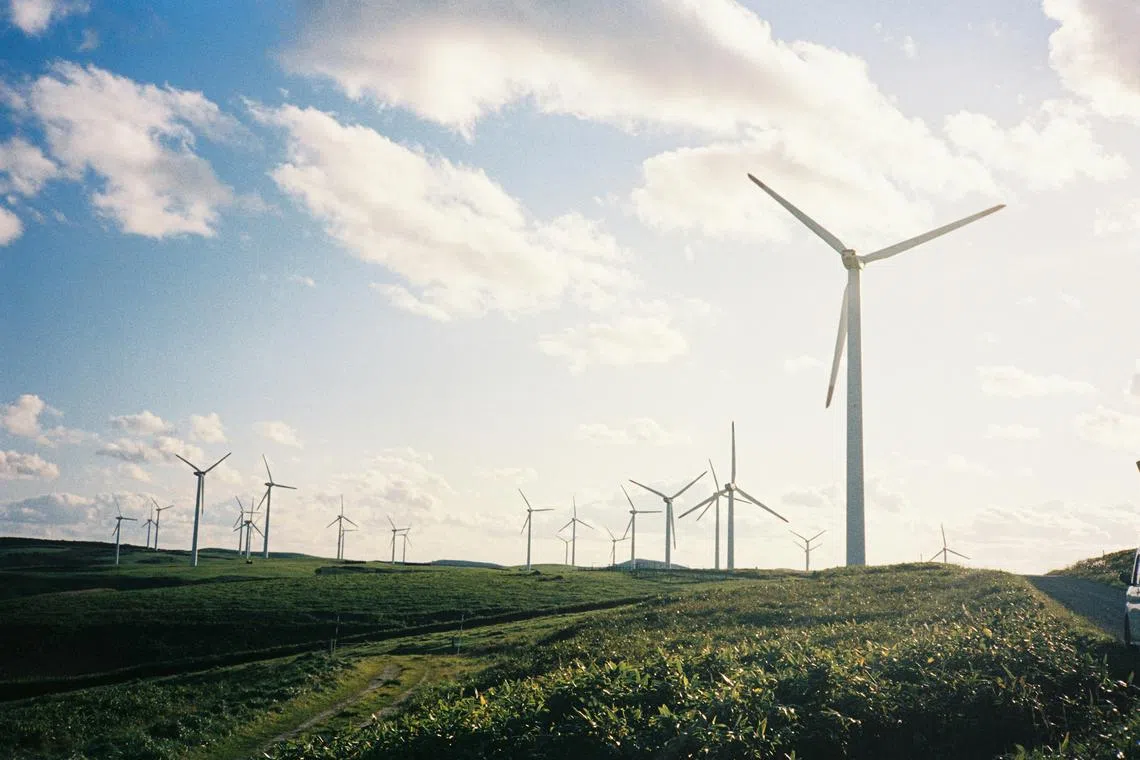Top US climate envoy urges Japan to speed up renewables adoption
Sign up now: Get ST's newsletters delivered to your inbox

Offshore wind, particularly floating turbine technology, can help Japan decarbonise.
PHOTO ILLUSTRATION: UNSPLASH
Follow topic:
TOKYO – Japan should accelerate its renewable energy roll-out and focus on technologies including offshore wind, John Podesta, the top US climate envoy, said on a visit to the Asian nation.
Offshore wind, particularly floating turbine technology, can help Japan decarbonise, and there are opportunities to collaborate with the US on it, Mr Podesta said at a briefing in Tokyo on March 13. Nuclear power restarts are also important for the country to meet its climate targets, he said.
There’s “a tremendous opportunity” to build out renewables in Asia, said Mr Podesta, who took over from Mr John Kerry last week. “There’s no question that if we’re going to avert a catastrophic human disaster, we need to make that transition and increase the pace and scale of that action.”
Japan is targeting net-zero by 2050,
The country has said it needs all tools available in order to get to net-zero, but its plan relies on technologies not yet available at scale, such as pairing carbon capture and storage with coal and gas power plants. Japan is also eyeing ammonia and hydrogen co-firing with fossil fuels, which has been criticised for being too costly and potentially ineffective.
Although Japan has ambitious offshore wind targets, it hasn’t yet dedicated significant resources to building out capacity. The country is currently on track for 4.4 gigawatts by 2030, BloombergNEF said late in 2023. That’s well short of its goal of reaching 10 gigawatts by the end of the decade.
Mr Podesta said that the US and Japan are discussing energy transition financing, and that the two nations should be aligned ahead of COP29.
Unlike Mr Kerry, who occupied an office at the State Department, Mr Podesta will be based at the White House in his new role. Where Mr Kerry focused on wringing more climate ambition from Middle Eastern nations, his replacement is widely expected to spend more time concentrating on countries that are most vulnerable to climate change.
Mr Podesta’s visit to Japan comes ahead of a meeting between Mr Kishida and President Joe Biden in Washington on April 10. “This is a good moment for us to engage about plans going forward” and to be more ambitious, he said. BLOOMBERG

